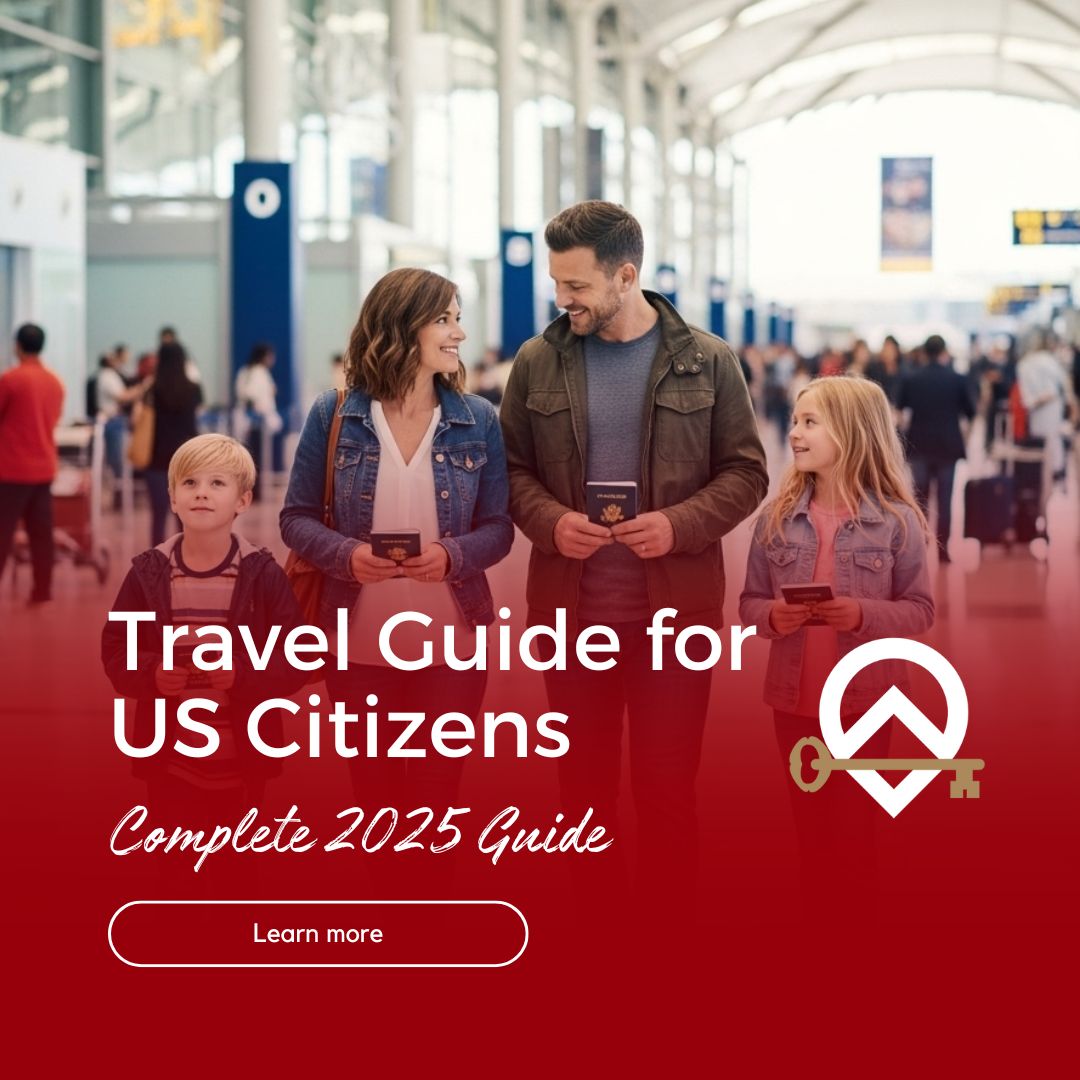The Thailand Destination Thailand Visa (DTV) has revolutionized long-term stays for digital nomads, remote workers, and freelancers. This game-changing visa allows you to stay in Thailand for up to 180 days per entry with a 5-year validity period. But here's the key question every applicant asks: where exactly can you apply for this coveted visa?
Whether you're planning to work remotely from the beaches of Phuket or the bustling streets of Bangkok, knowing where and how to apply for your DTV visa is crucial for a smooth application process.
Table of Contents
- Online Application Through Thai E-Visa System
- Thai Embassies and Consulates Worldwide
- Application Requirements and Process
- Processing Times and Approval
- Popular Application Locations
- Tips for Successful Application
Online Application Through Thai E-Visa System
The most convenient way to apply for a DTV visa is through Thailand's electronic visa system. Starting January 1st, 2025, the Thai E-Visa system became available at ALL Thai embassies and consulates worldwide, making the process more accessible than ever before.
How the E-Visa System Works:
As of 2025, you no longer need to visit an embassy in person to apply for the DTV. Instead, you can submit your application online from any country with a Thai embassy or consulate, upload the necessary documents, and complete the entire process digitally.
The official website for Thailand's electronic visa applications is operated by the Ministry of Foreign Affairs. You can submit your application online through the Thai e-Visa system, designed to streamline and expedite the processing. This system accepts digital copies of all required documents and processes payments electronically.
Benefits of Online Application:
The online system offers several advantages over traditional in-person applications. You can apply from anywhere in the world, track your application status in real-time, and receive your approved visa electronically. There's no need to physically visit an embassy or consulate, saving time and travel costs.
Important Considerations:
While you can apply online, it's important to note that processing will still be conducted through your local Thai embassy. This means your application will be reviewed by the embassy staff in your region, even though you submit it electronically.
Payment Process:
The application fee for the DTV visa is 10,000 Thai Baht, which can be paid online using various international payment methods. The system accepts major credit cards and digital payment platforms, making it convenient for applicants worldwide.
Thai Embassies and Consulates Worldwide
While online applications are now the norm, you can still apply for a DTV visa in person at Thai diplomatic missions around the world. Understanding which embassies and consulates accept DTV applications is crucial for planning your application strategy.
Application Locations:
You can visit the nearest Royal Thai Embassy or the Royal Thai General Consulate in person. However, it is important to note that some embassies and consulates may not accept applications from non-residents who do not hold residence permits or long-term visas in their country.
Residency Requirements:
This residency requirement is a key factor in choosing where to apply. If you're not a resident of the country where the Thai embassy is located, you may face restrictions. Some embassies require proof of legal residence, such as work permits, student visas, or permanent residency status.
Operating Hours:
Most Thai embassies and consulates operate during standard business hours. Typical operating hours are Monday through Friday from 9:00 AM to 5:00 PM, except for embassy holidays. It's advisable to check the specific hours of your chosen embassy before visiting.
Appointment Systems:
Many embassies now require appointments for visa applications. You'll likely have to make an appointment, arrive with all documents in hand, present them to the immigration officer, and then await your answer. Some embassies offer same-day processing, while others may take several business days.
Language Considerations:
While most Thai embassies provide services in English, some may primarily operate in the local language of the host country. Having documents translated or bringing a translator might be necessary in some locations.
Application Requirements and Process
Regardless of where you apply, the DTV visa has specific requirements that must be met. Understanding these requirements before starting your application will save time and increase your chances of approval.
Essential Documents:
Every DTV application requires a valid passport with at least six months of remaining validity, completed application forms, recent passport-style photographs, and proof of financial stability. The financial requirement typically involves demonstrating access to at least 500,000 Thai Baht in savings or equivalent income.
Professional Documentation:
Since the DTV is designed for remote workers and digital nomads, you'll need to provide evidence of your professional activities. This can include employment contracts, freelance agreements, business registration documents, or portfolio evidence of your work.
Application Process Steps:
The application process typically involves completing the online form, uploading all required documents, paying the application fee, and waiting for processing. Some applicants may be asked to provide additional documentation or attend an interview during the review process.
Document Verification:
All documents must be authentic and properly formatted. Some embassies may require documents to be apostilled or notarized, particularly educational certificates or business registration documents. Check with your specific embassy about their verification requirements.
Application Fees:
The standard DTV visa fee is 10,000 Thai Baht, regardless of where you apply. Some embassies may charge additional service fees for in-person applications or expedited processing.
Processing Times and Approval
Understanding the timeline for DTV visa processing helps you plan your application and travel arrangements effectively. Processing times can vary significantly based on the application method and embassy workload.
Standard Processing Times:
The review period varies but generally approved within a few days; however, more complex cases may take longer. Most straightforward applications are processed within 5-10 business days, while complex cases involving additional documentation may take 2-3 weeks.
Factors Affecting Processing Time:
Several factors can influence how quickly your application is processed. These include the completeness of your documentation, the current workload at the embassy, seasonal demand, and whether additional verification is required for your professional or financial documents.
Approval Notification:
Once approved, you'll receive an electronic confirmation. This electronic visa approval can be printed and used for travel to Thailand. The approval will include your visa number, validity dates, and entry conditions.
What to Expect During Processing:
During the processing period, embassies may contact you for additional information or clarification. It's important to respond promptly to any requests to avoid delays. Some embassies provide online tracking systems where you can monitor your application status.
Rejection and Appeals:
If your application is rejected, you'll receive notification with the reasons for rejection. While there's typically no formal appeal process, you can address the issues and submit a new application. Common rejection reasons include insufficient financial proof, unclear professional documentation, or incomplete application forms.
Popular Application Locations
Certain Thai embassies and consulates have become popular choices for DTV visa applications due to their efficiency, clear processes, or favorable policies. Understanding these options can help you choose the best location for your application.
Southeast Asian Embassies:
Many digital nomads choose to apply at Thai embassies in neighboring Southeast Asian countries. Popular locations include the Thai Embassy in Kuala Lumpur, Malaysia, and the Thai Consulate in Ho Chi Minh City, Vietnam. These locations often have experience with digital nomad visas and streamlined processes.
Western Embassies:
Thai embassies in Western countries, such as those in London, Sydney, or major U.S. cities, typically have well-established procedures for DTV applications. These embassies often provide comprehensive English-language support and clear application guidelines.
Considerations for Location Choice:
When choosing where to apply, consider factors such as residency requirements, processing times, language barriers, and travel costs. Some applicants specifically travel to countries with more favorable embassy policies or shorter processing times.
Digital Nomad Hubs:
Cities known as digital nomad destinations, such as Lisbon, Berlin, or Taipei, often have Thai embassies with experience handling DTV applications. These locations may have more understanding of the remote work lifestyle and requirements.
Regional Variations:
Different regions may have slightly different application procedures or requirements. Asian embassies might have different document requirements compared to European or American embassies. Research the specific requirements for your chosen embassy before applying.
Tips for Successful Application
Maximizing your chances of DTV visa approval requires careful preparation and attention to detail. These practical tips can help ensure your application process goes smoothly and successfully.
Document Preparation:
Ensure all documents are clear, current, and properly formatted. Scan documents in high resolution and save them in the required file formats. Organize your documents logically and create backup copies of everything before submission.
Financial Documentation:
Bank statements should clearly show consistent income or savings over several months. Avoid large, unexplained deposits immediately before application, as these may raise questions. Consider providing multiple forms of financial proof to strengthen your application.
Professional Portfolio:
Create a comprehensive portfolio demonstrating your remote work capabilities. Include client testimonials, work samples, contracts, and evidence of ongoing projects. This helps establish your legitimacy as a remote worker or digital nomad.
Application Timing:
Apply well in advance of your intended travel date to allow for processing time and potential delays. Avoid applying during peak periods when embassies may be overwhelmed with applications.
Communication Strategy:
Respond promptly to any embassy requests for additional information. Maintain professional communication and be prepared to provide clarification about your work or financial situation. Keep records of all communications with the embassy.
Backup Plans:
Have alternative application locations in mind in case your first choice doesn't work out. Consider applying for other visa types as backup options while your DTV application is being processed.




